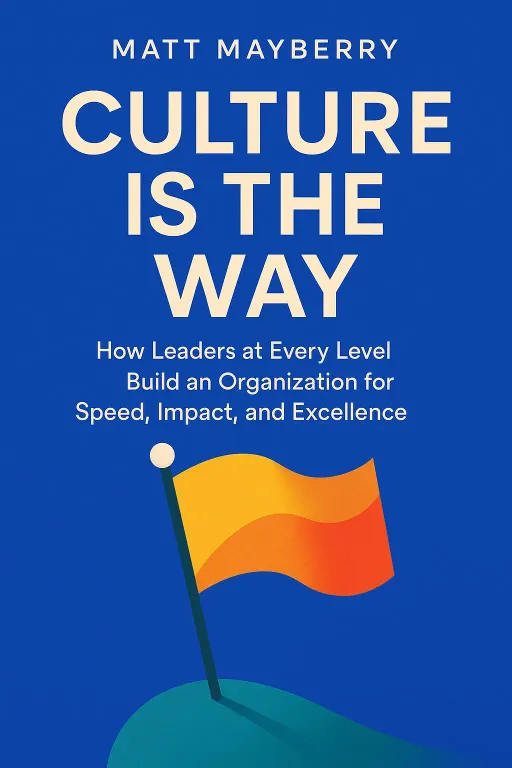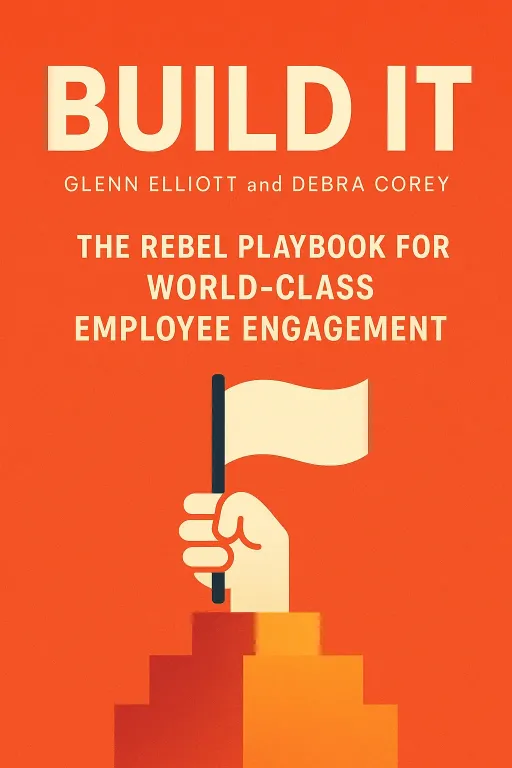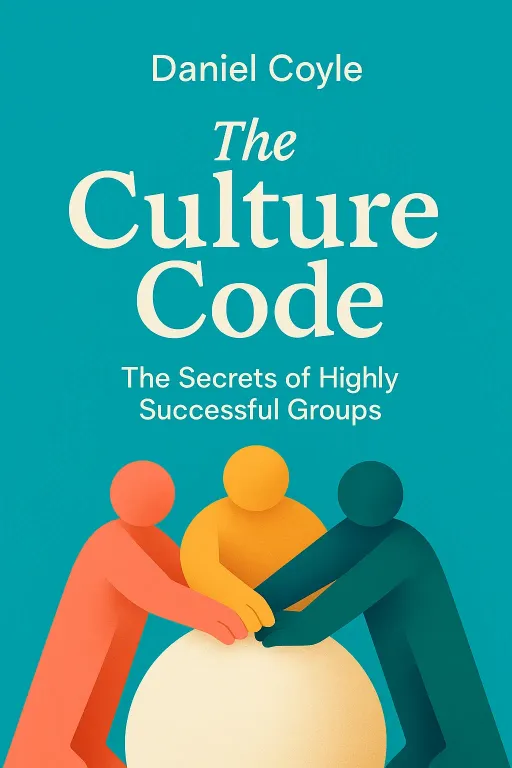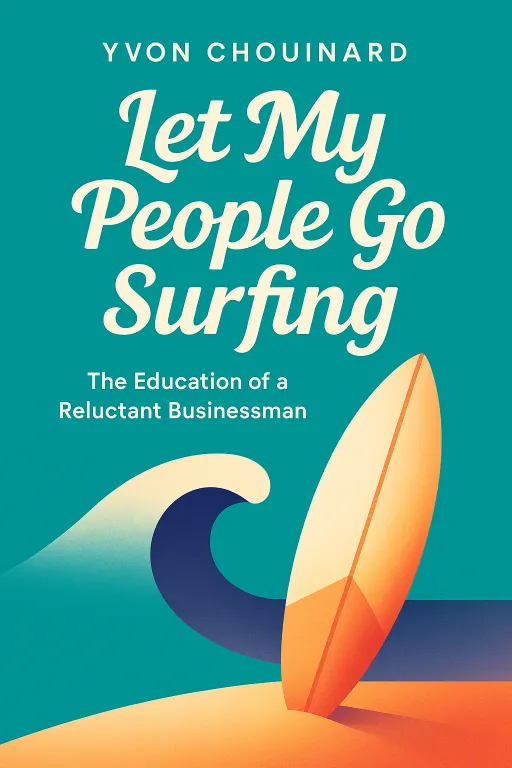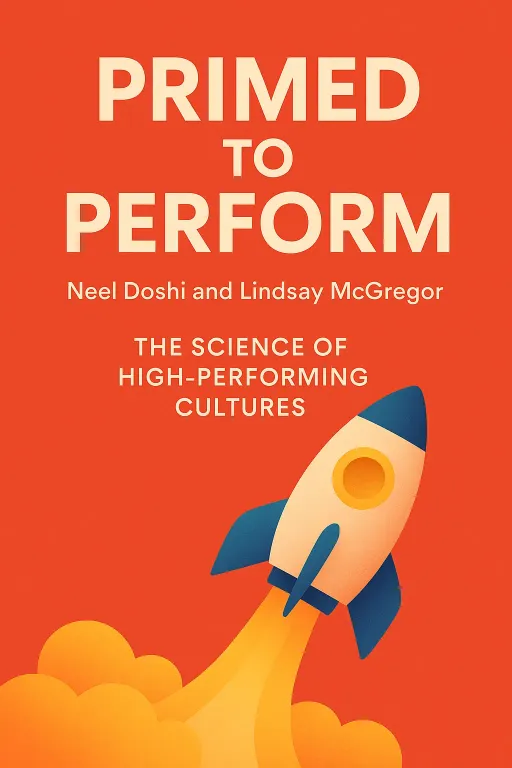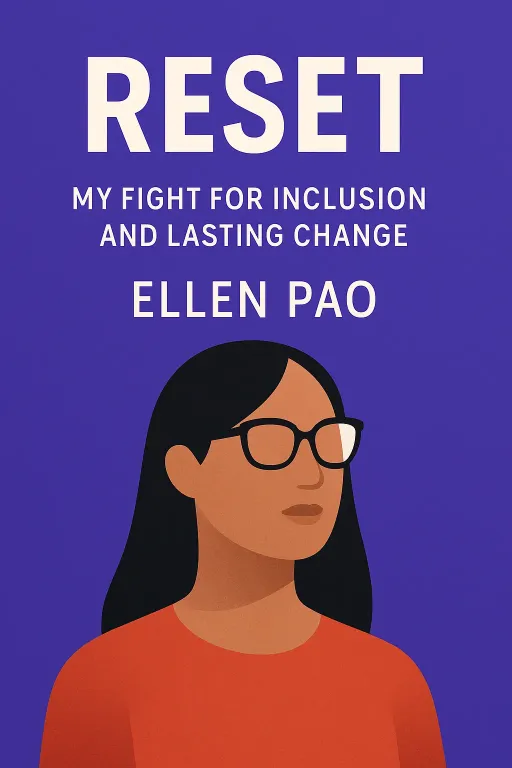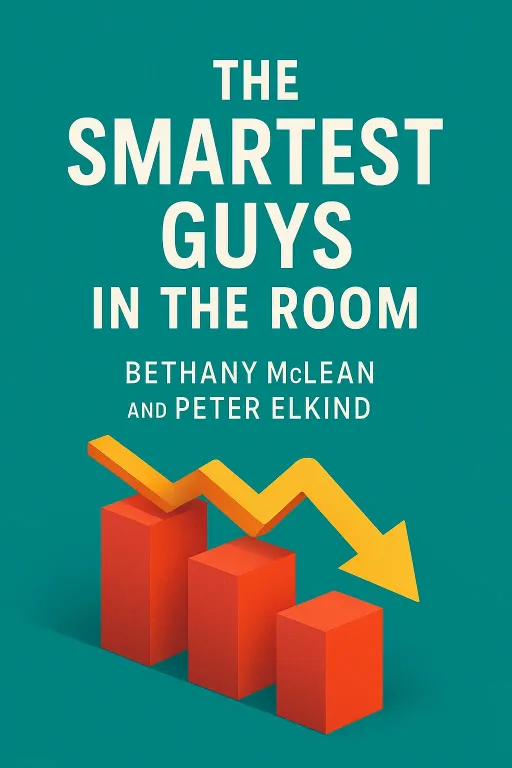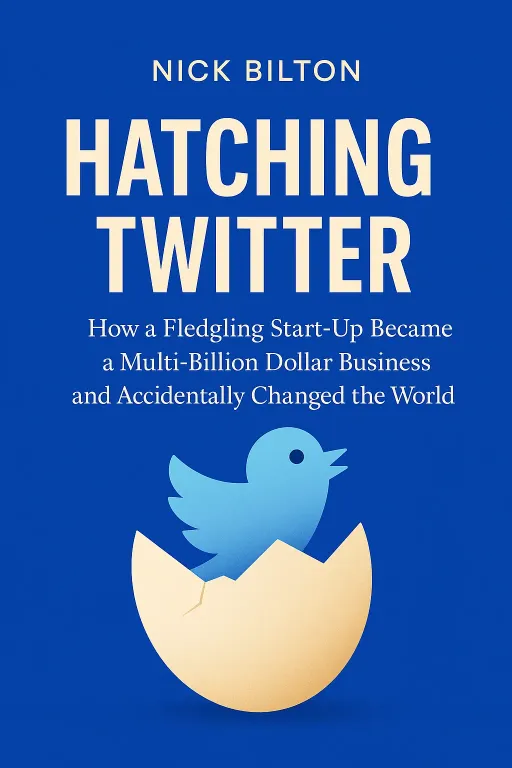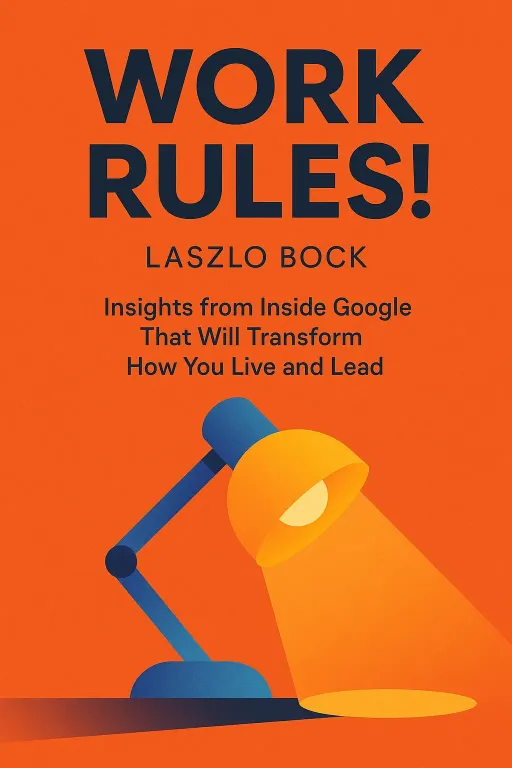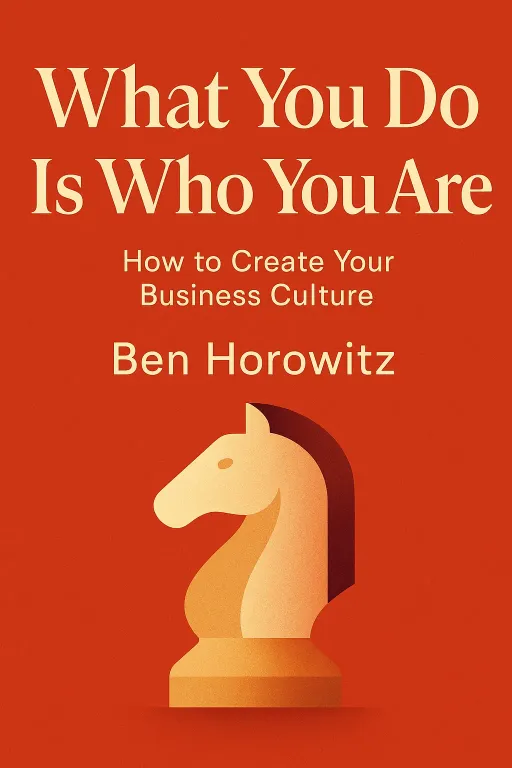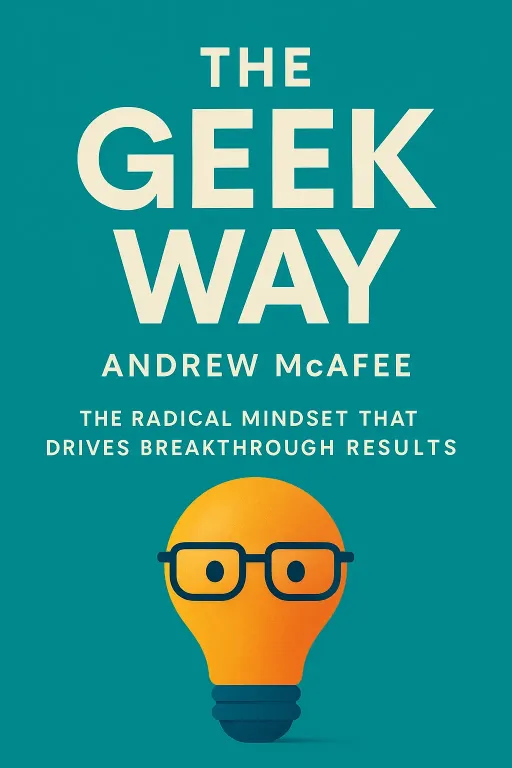
Hunting the HiPPO
13 minGolden Hook & Introduction
SECTION
Michelle: Most companies fail not because of bad strategy, but because of good manners. They're too polite to argue, too structured to move fast, and too afraid of data to admit they're wrong. Mark: Hold on, good manners are a bad thing? My mother would be horrified. That sounds completely backwards. Are you saying we should all be rude at work? Michelle: Not rude, but radically honest. Today, we're exploring a culture that thrives on the opposite of politeness: a culture that is argumentative, evidence-obsessed, and relentlessly fast. That's the radical idea at the heart of The Geek Way by Andrew McAfee. Mark: McAfee... isn't he a big-shot researcher at MIT? It's interesting that a top academic is writing what sounds like a Silicon Valley playbook. Michelle: Exactly. And that's the key. He's not just a business guru; he's a scientist of culture. He argues this 'Geek Way' isn't about hoodies and ping-pong tables—it's about tapping into some fundamental human superpowers for cooperation and learning that traditional companies actively suppress. Mark: Human superpowers? Okay, now you’ve got my attention. I was picturing pocket protectors, not superheroes. Michelle: Well, prepare to have your picture of a "geek" completely redrawn. McAfee argues this mindset is the engine behind the most innovative companies of our time, and it’s built on what he calls the 'Fourfold Path.'
The Fourfold Path: Deconstructing the Geek DNA
SECTION
Mark: A 'Fourfold Path.' That sounds very philosophical, almost spiritual. What are these four commandments of geekdom? Michelle: They really are like commandments. The first one is my favorite: Science. And he doesn't mean lab coats and beakers. He means a ruthless, almost religious commitment to data over opinion. It’s about ending arguments with evidence, not authority. Mark: Okay, so whose idea wins is based on data, not on who has the corner office. I like the sound of that. Michelle: Precisely. The book talks about how Google made this a core part of its DNA. They have a term for the enemy of good decision-making: the "HiPPO." Mark: A hippo? Like the animal? Michelle: Almost. It stands for the "Highest-Paid Person's Opinion." The HiPPO is the executive who makes decisions based on gut feeling or seniority. The Geek Way is designed to make the HiPPO an endangered species. Mark: I love that. So how do you hunt a HiPPO? Michelle: With data. The most famous story is about Google's advertising links. For years, they were a certain shade of blue. A designer wanted to change it. Instead of a big debate, they ran an experiment. They tested 41 different shades of blue on users to see which one got the most clicks. Mark: Forty-one shades of blue? That sounds incredibly tedious. Michelle: It might be, but the winning shade—the one users preferred—reportedly increased annual ad revenue by $200 million. That's the power of science over opinion. The data won, not the designer with the best presentation. Mark: Wow. Okay, but I can see a downside here. It feels a bit soulless. What about creativity or artistic vision? I remember reading that a top designer, Doug Bowman, actually quit Google over this exact issue. He felt like data was killing art. Michelle: And that's a real tension the book acknowledges. But McAfee’s argument, and the geek argument, is that it’s not about killing art. It’s about being less wrong over time. A brilliant idea is still just a hypothesis. The Geek Way says, "Trust, but verify." Your genius needs to survive contact with reality. Mark: Okay, I can get on board with that. What’s the second norm? Michelle: The second is Ownership. This is about dismantling bureaucracy and giving people real autonomy. The book tells this incredible story about Ardine Williams, who joined Amazon from old-school companies like HP and Intel. She needed to make a simple change to the company's job website for legal compliance. Mark: Sounds straightforward. Send an email, get approval, done in a day. Michelle: You'd think! At her old companies, that would have been a six-week nightmare of meetings and sign-offs. At Amazon, she couldn't figure out who was supposed to approve it. She was stuck. Finally, a senior colleague told her, "You have legal and business approval. You're the owner. Just push the button." Mark: She could just... do it? Herself? Without a committee? That sounds like chaos. And also... kind of amazing. Michelle: It was a culture shock for her. She said pushing that button was one of the hardest things she’d ever done. But that’s Ownership. You own the outcome, so you own the decision. It’s about small, empowered teams that can act without asking for permission. Mark: That directly connects to the third norm, I'm guessing: Speed. Michelle: You got it. But again, it's not just about moving fast. It's about the speed of iteration. How quickly can you build something, test it, learn, and do it again? The perfect example is Planet Labs. Mark: The satellite company? Michelle: The very one. The founder, Will Marshall, came from NASA, where building a satellite was a billion-dollar, decade-long process. They planned everything to perfection because failure was not an option. Marshall thought that was insane. Mark: How so? You don't want your expensive satellite to fail. Michelle: His insight was that you could build a hundred cheap satellites using off-the-shelf components—literally smartphone parts—and launch them quickly. If a few failed, who cares? You learn from the failure and launch a better version next week. He traded perfection for speed. Today, Planet Labs has a thousandfold cost advantage over its competitors. They're not building one perfect thing; they're constantly evolving. Mark: That’s a total mind-flip. It’s like the difference between a Hollywood blockbuster that takes five years to make and a YouTuber who posts three videos a day. One is slow and perfect, the other is fast and constantly learning from the audience. Michelle: That is the perfect analogy. And it brings us to the fourth and final norm: Openness. This is the cultural glue that holds it all together. It’s the willingness to hear bad news, to be challenged, and to change your mind. Mark: That sounds great on a motivational poster, but does it actually happen? I can just imagine a new hire challenging the CEO. In most companies, that's what the book calls a 'career-limiting move,' like at the old accounting firm Arthur Andersen. Michelle: Exactly! And that's why the story from HubSpot is so powerful. The CEO, Brian Halligan, was proposing a new internal education program. He presented it to a group of employees, including a recent hire. This new guy, instead of just nodding along, openly challenged parts of the proposal. Mark: And he was fired on the spot, right? Michelle: The opposite. Halligan listened, acknowledged the points were valid, and changed his approach. That's Openness. It’s creating a culture where the best idea wins, regardless of who it comes from. It’s the antidote to the HiPPO. So you have Science, Ownership, Speed, and Openness. That’s the DNA of the Geek Way.
Clash of the Titans: The Geek Way vs. The Old Guard
SECTION
Mark: These four norms sound powerful in theory, but I want to see them in a fight. What happens when a 'Geek Way' company goes head-to-head with a traditional one? It’s like a cage match between two different philosophies of work. Michelle: We have the perfect case study for that cage match: the spectacular, glorious, multi-billion-dollar trainwreck of a company called Quibi. Mark: Oh, I remember Quibi! The short-form video app for your phone. It had every big name in Hollywood, a ton of money, and it vanished in, what, six months? Michelle: Less than 200 days. And McAfee uses it as the ultimate anti-Geek-Way story. Quibi was run by Jeffrey Katzenberg, a certified Hollywood titan. He was the ultimate HiPPO. His entire approach was a masterclass in violating the four norms. Mark: Break it down for me. How did he fail the geek test? Michelle: Let's start with Science. Katzenberg made decisions based on his gut. His core idea was that people wanted to watch high-budget, ten-minute "quick bites" of video on their phones. When asked for the data to support this, he famously said, "There is none. You just have to go with your gut." Mark: Oh boy. That’s the opposite of testing 41 shades of blue. He was so confident in his own taste. I remember a quote from the book where he said, "I know millennials better than millennials." Michelle: The hubris is breathtaking! Then there's Ownership. He micromanaged everything. He was involved in casting, wardrobe, everything. Employees said they were just there to "execute his vision, which no one else there believes in." There was no autonomy. Mark: So no one felt like they could 'push the button.' What about Speed? Michelle: The opposite of speed. They spent nearly two billion dollars to launch a "perfect" product all at once. There was no beta version, no early release to get feedback, no iteration. They just dropped this fully formed, expensive thing on the world and expected everyone to love it. Mark: And Openness? I'm guessing he wasn't a fan of being challenged. Michelle: Not in the slightest. Advisors told him people would want to watch on their TVs. He refused. They told him people would want to share clips on social media. He forbade it. One producer summarized the whole Quibi story as Katzenberg's attitude being: "Everyone else is fucking wrong; I’m just going to do it." Mark: Wow. It’s like he was actively trying to fail, but with more confidence than anyone has ever had. I love the insider quote from the book that the name "Quibi" sounded like a "quinoa-based doggy snack." Michelle: It’s the perfect storm of anti-geek thinking. Now, let’s look at the other side of that coin: Netflix. Mark: The company that actually won the streaming wars. Michelle: Right. And who founded it? Not a Hollywood exec, but Reed Hastings, a computer geek with a background in software. He built his company on the Geek Way principles before they even had a name. Mark: How so? Michelle: Science? Netflix is famous for its A/B testing. They test everything—from the promotional images for a show to the plot points in interactive specials. They don't guess what you want to watch; they measure it. Ownership? Their famous culture deck emphasizes "freedom and responsibility," giving small teams incredible autonomy. Openness? They are legendary for their culture of radical candor and transparency. Mark: It’s a completely different worldview. And I remember the book points out how the old guard just couldn't see them coming. Michelle: It’s my favorite part of the story. In 2010, the CEO of Time Warner, Jeff Bewkes, was asked about the threat of Netflix. He just laughed and said, "It’s a little bit like, is the Albanian army going to take over the world? I don’t think so." Mark: Famous last words. The Albanian army, led by the geeks, absolutely took over the world of entertainment. Michelle: They did. And it wasn't because they had better movies, at least not at first. It was because they had a better culture. A culture designed to learn and adapt faster than anyone else.
Synthesis & Takeaways
SECTION
Mark: So when you put it all together, it's not really about tech versus entertainment, or Silicon Valley versus Hollywood. It's a fundamental battle of cultures. One is a top-down pyramid built on the genius and gut-instinct of a single leader. The other is a decentralized network that harnesses the collective intelligence of the entire group. Michelle: That’s the perfect synthesis. McAfee’s ultimate point is that we are all, as a species, "ultrasocial" creatures. We're wired to learn from each other and cooperate in groups. The old industrial model fights against that wiring with hierarchy and secrecy. The Geek Way works because it’s designed for how humans actually thrive. Mark: It’s a system that embraces our natural curiosity and our desire to contribute, rather than just telling us to stay in our lane and follow the process. Michelle: Exactly. And the book is clear: this isn't a magic formula for corporate immortality. Companies will still fail. Competition is relentless. But it is a path to vitality. It’s a way to build an organization that is alive, that learns, that adapts. It’s a better way to work. Mark: It makes you wonder, though. If this way is so much better, why don't more companies do it? It sounds simple on the surface. Michelle: Because it's hard. It requires leaders to give up control, to admit they might be wrong, and to be comfortable with a certain level of chaos. It’s easy to talk about openness; it’s much harder to hear that your pet project is a bad idea. Mark: That’s so true. It really forces you to look at your own team or your own company and ask some uncomfortable questions. Michelle: And that’s the real takeaway. The book has been widely praised as a "handbook for disruptors," but I think it’s more of a mirror. It forces you to reflect. So the question for anyone listening is: which of those four norms—Science, Ownership, Speed, or Openness—is your own team most afraid of? Where is the "good mannered" silence holding you back? Mark: That’s a powerful question. I think for many, it’s the fear of real, honest debate—the Openness part. We'd love to hear what our listeners think. Which norm feels the most radical or the most needed where you work? Find us on our socials and join the conversation. Michelle: It's a conversation worth having. The Geek Way might just be the blueprint for building the future, one evidence-based argument at a time. Mark: This is Aibrary, signing off.
